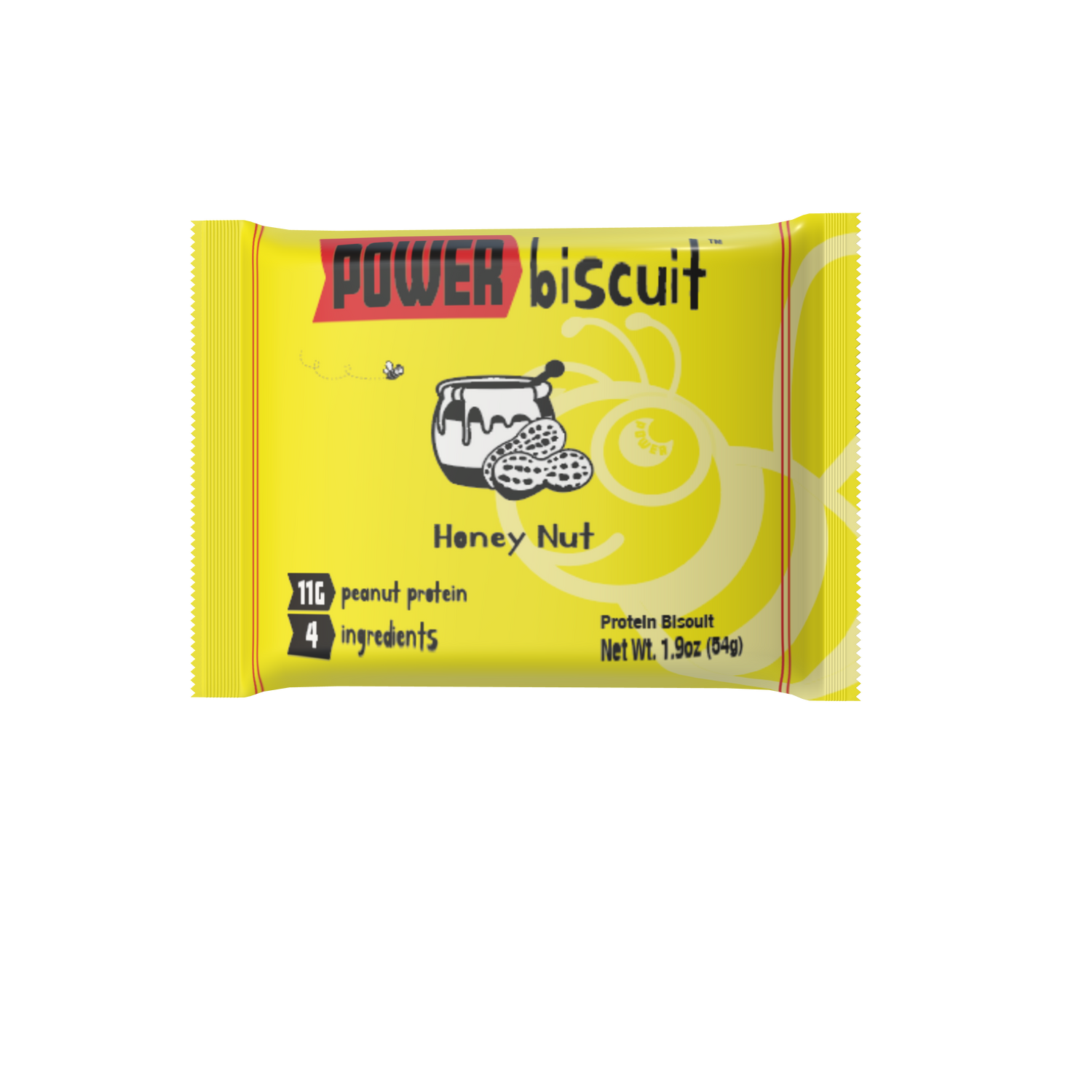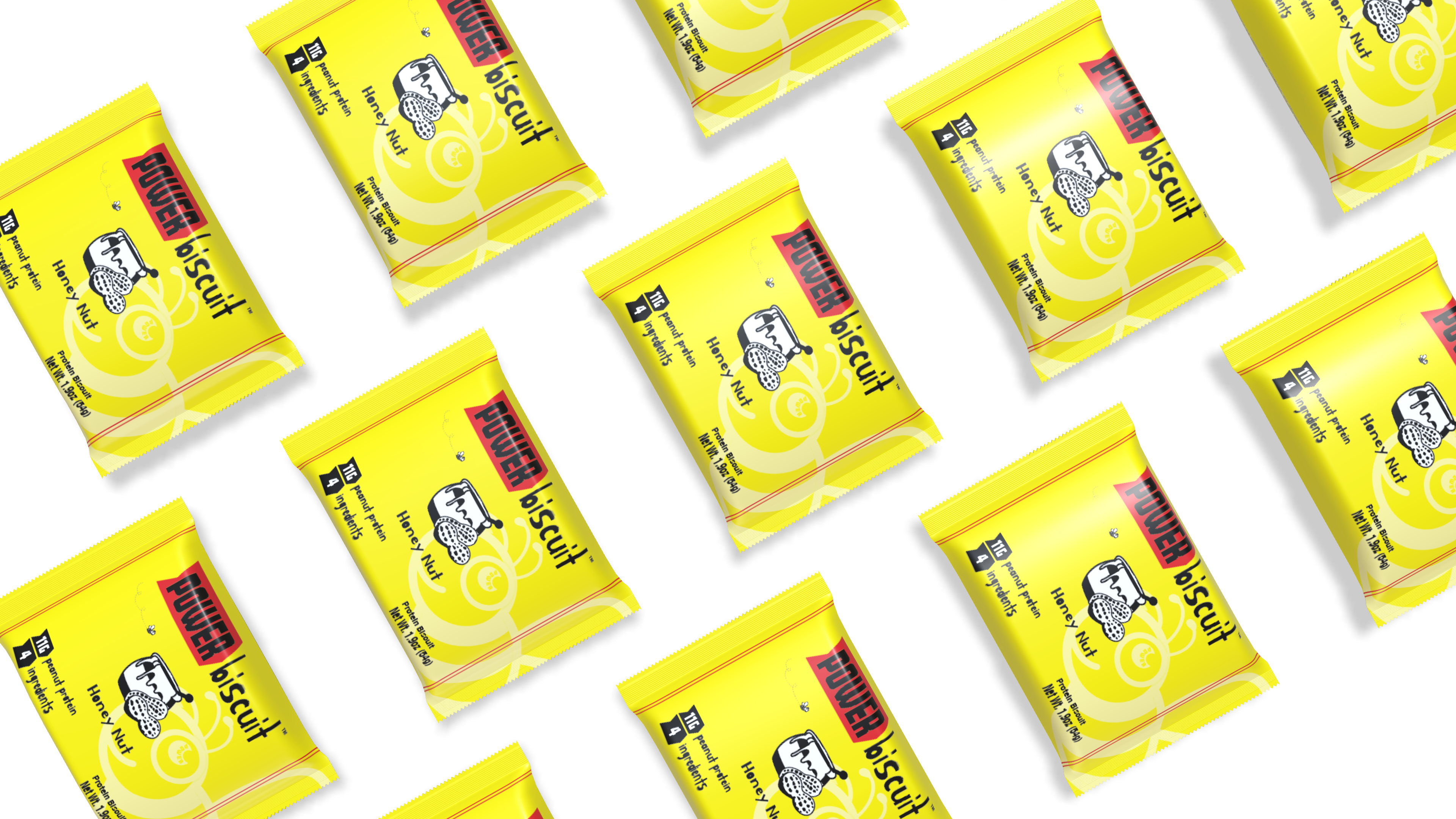

Protein bars are too pricey and weird
POWER biscuit sticks to basics
-

Peanuts
and delicious honey, and a sprankle of dates and cocoa butta
-

Protein from a plant
so if you have a peanut allergen, please don't buy us
-

Lasts 5ever
like you can stick it in your frunk and fuhgeddaboudit*
-

Free Shipping
guaranteed or Biscuit will "hand" deliver with their tiny feet
1
/
of
4

Support Biscuit's power trips
Buy our awesome 40 pack, aka "The Cube", and have a snacksident any time you want

Honey Nut 40 Pack - "The Cube"
Regular price
$ 43.60 USD
Regular price
$ 0.00 USD
Sale price
$ 43.60 USD
Unit price
/
per
Share











